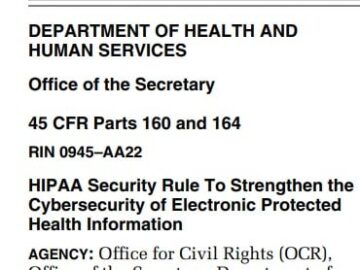After the Qilin ransomware gang last week published on its leak site a data subset as a proof of hacking Synnovis’ systems, the London-based pathology services provider has now confirmed its legitimacy saying the data belongs to its storage drive related to administrative work and contains fragments of patient identifiable data.
Hackers that are linked to the Russian-linked Qilin ransomware gang published on Friday around 400 gigabytes of sensitive patient data, which they claimed included names, dates of birth, NHS numbers and descriptions of blood tests stolen from Synnovis’ systems.
Following the data leak on the dark web, Synnovis confirmed on Monday that the published data was legitimate but noted it was too early to determine the full extent of the compromised information.
“Last week a group claiming responsibility for the cyberattack published data online. We have now been able to confirm that this data was stolen from Synnovis’ systems.” – Synnovis
An initial review from Synnovis over the weekend revealed no evidence that the Laboratory Information Management Systems (LIMS) – the primary databases for patient test requests and results – were posted. However, fragments of patient-identifiable data from an administrative working drive have been published, Synnovis said.
The payroll information storage area remains unaffected but further review of employee-related data that appeared in the dataset published on the dark web is underway.
Synnovis emphasized the priority of understanding the compromised administrative working drive. The company is working alongside technical experts to ascertain more details and mitigate concerns among service users, employees and partners.
The Information Commissioner’s Office (ICO) is investigating the breach, acknowledging the sensitivity of the leaked data and the anxiety it may cause.
“While we are continuing to make enquiries into this matter, we recognize the sensitivity of some of the information in question and the worry this may have caused,” the ICO said. The ICO advises concerned individuals to visit its website and NHS England’s site for guidance and support.
NHS England continues collaborating with Synnovis and the National Crime Agency to address the ransomware attack. NHS England acknowledged Synnovis’ initial analysis that confirmed the published data originated from their systems. The complex nature of such investigations means it could take weeks to identify all impacted individuals, it said.
As the investigation proceeds, NHS England and Synnovis will provide updates and have established a helpline for those affected.
Local health systems are working together to manage the impact on patients and have deployed additional resources to ensure urgent blood samples are processed. Laboratories can now also access historical patient records, which aids continuity of care, NHS England said.
The cyberattack has significantly delayed blood tests, with some media reports stating NHS patients potentially waiting up to six months for sample collection. Earlier, Synnovis said the ransomware attack had significantly brought down the daily blood sampling count in major London hospitals from 10,000 to merely 400 per day.
The Guardian cited a letter to one of the patients from the impacted hospital being told by letter:
“Sadly it appears it may be three to six months before bloods can be taken again. You will be put on a waiting list and our secretaries will contact you when bloods can be taken again. If you haven’t heard anything in the next four months please feel free to contact us on the details above. I want to apologise for this inconvenience and appreciate this will be frustrating.”
The pathology service provider was processing only “clinically critical” blood samples flagged by clinicians. These delays have prompted some patients to seek private clinics for faster testing and analysis that cost significantly high.
The impact of the Synnovis ransomware attack is also felt on NHS Blood and Transplant (NHSBT), as it appealed to the public earlier this month to urgently donate O blood-type (+ve and -ve) across England. The attack caused significant disruption on the hospitals’ ability to match patients’ blood types, leading to an increased demand for O-positive and O-negative blood donations that are medically considered safe for all patients.



